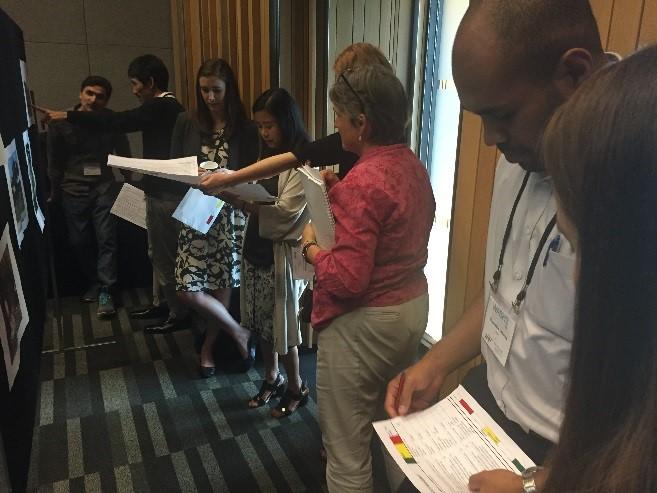Training at Brisbane WASH Futures Conference

LSHTM/Erin Flynn
In May 2016, practitioners and professionals from civil society, governments, the private sector, donors, and academic institutions came together in Brisbane, Australia, for the 4th WASH Futures Conference. Hosted by the Australian Department of Foreign Affairs and Trade (DFAT), the Australian WASH Reference Group and the International Water Centre (IWC), the conference addressed the overarching theme ‘Pathways to universal and sustained water, sanitation and hygiene’, considering new ways of thinking that could help the world deliver sustainable access to WASH for all.
New kid on the block
This was SHARE’s first time at the conference and, in partnership with WaterAid, WHO, DFAT, and UNICEF, we co-hosted a full day training on the 19th May on WASH in HCFs entitled: ‘A ‘How to’ for Driving Global, National and Facility level Action’.
Facilitated by WaterAid’s Alison Macintyre, the day was attended by over 30 WASH professionals from government, NGOs, civil society and donors, and started with a presentation from WHO’s Bruce Gordon. During this session the group discussed the findings from the landmark global report on WASH in HCFs in low and middle income countries and progress being made against the WASH in HCFs Global Action Plan. SHARE’s Policy Research Manager, Erin Flynn, went on to present a synthesised overview of several areas of evidence for WASH in HCFs and its impacts on health including links with health care associated infections, antimicrobial resistance, care seeking behaviours, staff morale and perceptions, and health care costs.
Innovative tools
Three facility needs assessment and improvement tools - WASH & Clean, WASHFIT and WASH Conditions in HCFs Scorecard - were presented in preparation for the facility walkthrough. For this activity participants were given a modified version of WASHFIT and asked to use the tool in teams to assess the facility, which had been set up using photographs. The session gave participants valuable insights into systemic challenges as well as the realities of WASH conditions for patients and healthcare providers in some settings.
Global learnings
In parallel sessions, country case studies were presented from Cambodia and Nepal. WaterAid and Emory University representatives detailed efforts in Cambodia to build momentum and interest on the issue of WASH in HCFs. Then a representative from Nepal’s Ministry of Health gave insights into cholera prevention efforts after the earthquake, including water quality testing at HCFs.
Tracking progress
Before wrapping up, UNICEF’s Chander Badloe presented the proposed core monitoring indicators for WASH in HCFs and highlighted how they will be embedded in SDG monitoring mechanisms. Participants were given the opportunity to discuss the indicators and provide feedback. The core indicators are due to be finalised in June.
The day concluded with participants reflecting on what they had learnt and action that they plan to take in the coming months. Emphasis was placed on the importance of the health sector leading and poor WASH being framed within existing health sector agendas.
